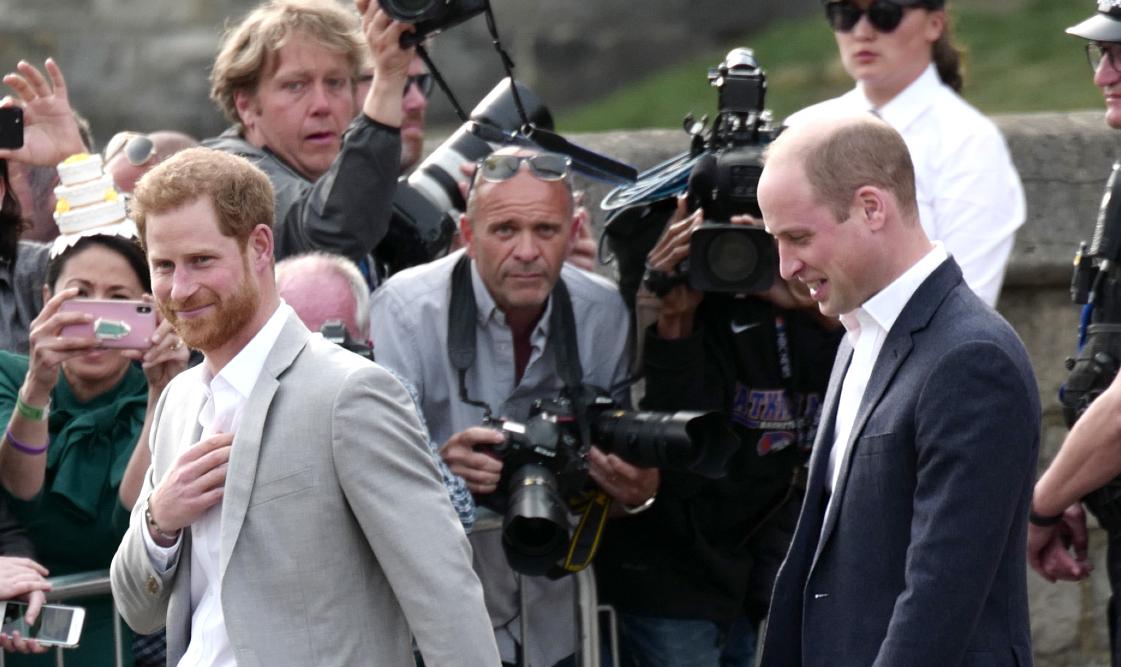Prince Harry & Prince William's Anger 'At The BBC May Bring Them Together' At Princess Diana's Statue Unveiling, Predicts Royal Expert

Even though Prince William and Prince Harry haven't been on the best of terms for quite some time, royal expert Robert Jobson said the brothers may put their feud aside when they reunite at Princess Diana's statue unveiling in July — especially after they both slammed Martin Bashir after a report found that he used "deceitful" methods to gain access to their mother.
"This may — their indignation at the BBC — may bring them all together, because frankly the feuding, blaming, finger pointing has to stop at some stage," Jobson said on the "HeirPod" podcast. "I'd hope that any sons, whoever they are, royal or not, could have decency to come together to pay tribute to their mother who they lost at a very early age, and pay their respects thoughtfully and with honor."
"I think to continue this feuding is both pointless and upsetting for everybody, I don't think doing our Royal Family any good in its brand abroad, and at some stage they have got to sit down and talk, so why not sit down and talk after the unveiling of statue of someone who did so much good for so many people around the world?" he added.
PRINCE CHARMING IN REAL LIFE! THE 10 MOST ELIGIBLE ROYAL BACHELORS IN THE WORLD — SEE PHOTOS
Last week, former High Court judge Lord John Dyson revealed that Bashir had created two false bank statements in order to lure Diana into giving the interview.
After the report was published, William and Harry both spoke out about the famous interview, in which Diana spoke about Prince Charles' affair with Camilla Parker-Bowles.
"I would like to thank Lord Dyson and his team for the report. It is welcome that the BBC accepts Lord Dyson’s findings in full – which are extremely concerning – that BBC employees: lied and used fake documents to obtain the interview with my mother; made lurid and false claims about the Royal Family which played on her fears and fuelled paranoia; displayed woeful incompetence when investigating complaints and concerns about the programme; and were evasive in their reporting to the media and covered up what they knew from their internal investigation," William said in a statement.
The note continued, "It is my view that the deceitful way the interview was obtained substantially influenced what my mother said. The interview was a major contribution to making my parents’ relationship worse and has since hurt countless others. It brings indescribable sadness to know that the BBC’s failures contributed significantly to her fear, paranoia and isolation that I remember from those final years with her. But what saddens me most, is that if the BBC had properly investigated the complaints and concerns first raised in 1995, my mother would have known that she had been deceived."
For his part, Harry said: "Our mother was an incredible woman who dedicated her life to service. She was resilient, brave, and unquestionably honest. The ripple effect of a culture of exploitation and unethical practices ultimately took her life. To those who have taken some form of accountability, thank you for owning it. That is the first step towards justice and truth. Yet what deeply concerns me is that practices like these — and even worse — are still widespread today. Then, and now, it's bigger than one outlet, one network, or one publication. Our mother lost her life because of this, and nothing has changed. By protecting her legacy, we protect everyone, and uphold the dignity with which she lived her life. Let's remember who she was and what she stood for."
